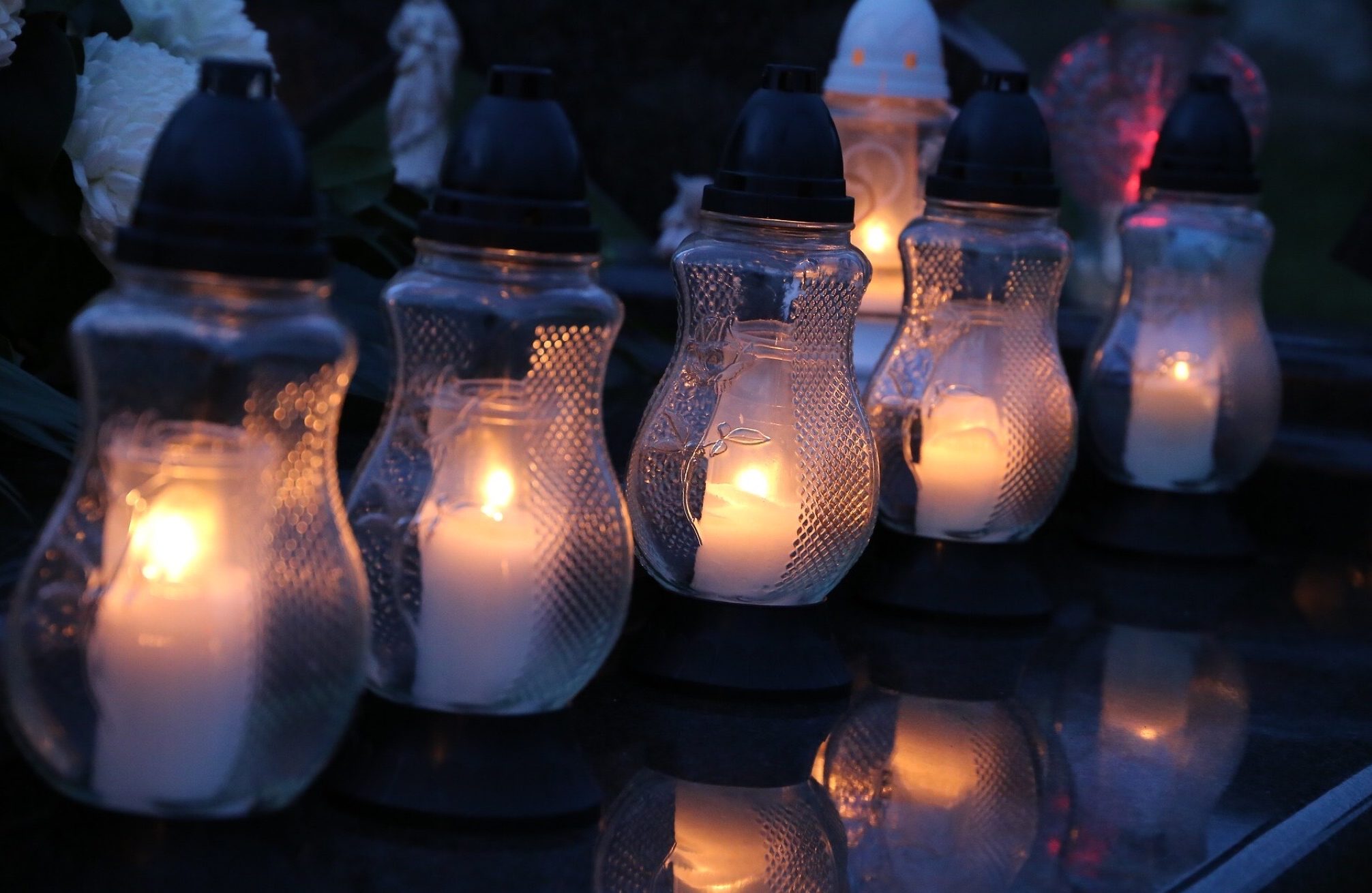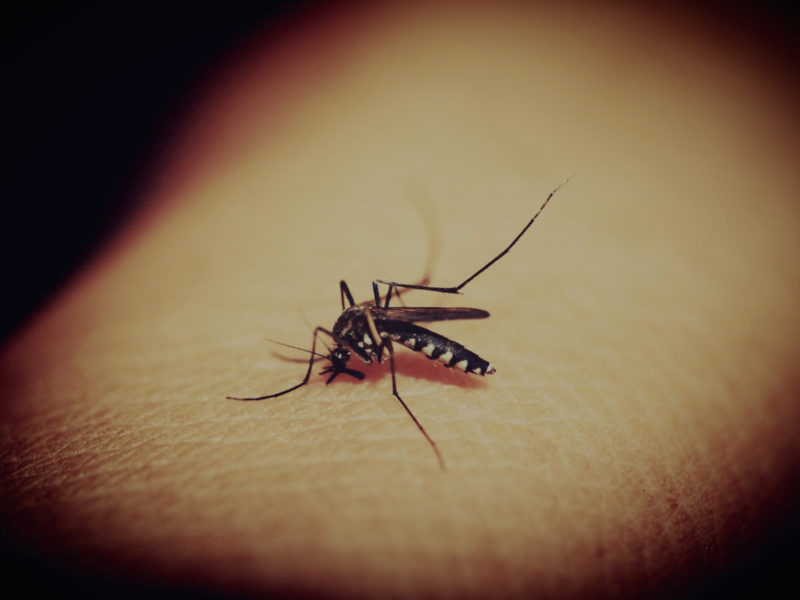When it comes to mosquito repellents, it can be a confusing exercise to sift through what is an effective deterrent and what’s not. It’s important to do your own research, but to help you get started, I debunk some of the more common myths about mosquito repellents.
Myth 1: Citronella Candles Work

This myth was one that I’d believed for years, stocking up on citronella votives, pillar candles and sticks, with the hope that while enjoying an outdoor meal, the scent would repel mosquitoes.
Why have we fallen for this? Like most myths, there’s a small kernel of truth: Citronella as an insect repelling substance isn’t completely off-base. According to the National Pesticide Information Center, the oil of citronella has the potential to repel insects and animals. The oil is distilled from two grass varieties in varying mixtures and is thought to repel target pests by masking the scents that are attractive to insects.

That’s where the connection ends. Studies show that burning citronella has little to no effect in repelling mosquitoes. Note also that there is no reference to mosquitoes on the NPIC Oil of Citronella page and the CDC doesn’t include citronella in its list of effective insect repellents.
One reason why we’ve fallen for this myth is that it’s still widely perpetuated, even from trusted sources. A simple search of citronella products for mosquitoes yields hundreds of products, including entire articles written about the best citronella candles to keep pests away.
Even reputable brand imply that citronella is “essential” for keeping insects away. Terrain company’s website, for instance, lists citronella products on its Sun and Insect Protection page, while its e-newsletters about citronella use language, such as “Banish bugs by candlelight … citronella to keep the pests away.” Would this be considered greenwashing? It’s a grey area, but definitely misleading.
I’m not suggesting that we discontinue using citronella (and I remain a satisfied Terrain customer). I like the scent, and in candle form, citronella candles are a decorative addition to outdoor entertaining, but you’ll need something else to keep mosquitoes away.
Myth 2: Strong Chemicals Are the Most Effective Mosquito Repellents
This myth presumes that the only way to keep mosquitoes at bay is to bomb yourself in a cloud of DEET or other strong chemicals. It also presumes a one-size-fits-all approach to bug repellent. That’s just not true.
When deciding how to protect yourself from mosquitoes, context is important: Where will you be when you’re outside? Will it be a heavily congested mosquito area, near standing water? How long will you be outside and during what time of the day or evening? Do you plan to cover-up?
I could continue throwing out the questions, but you get the picture. In most instances, natural mosquito repellents will be effective in deterring attacks without unnecessarily exposing yourself or your family to potentially harmful chemicals. Also keep in mind that you’ll probably need to combine one or more natural repellents — for example, covering up and adding a fan when you’re sitting outdoors in a buggy area for an extended period of time.
Of course, if you’re out in the wilderness in the middle of a swamp in a highly mosquito-prone area that includes mosquitoes that carry West Nile Virus or other diseases, then you’ll need to apply something stronger. Even in these instances, you can minimize chemical exposure by using products when needed and that contain relatively safe ingredients. Remember to apply chemical repellents on clothing instead of directly on the skin.
Myth 3: Avoid (or Eat) Certain Foods to Keep Mosquitoes Away

According to proponents of this myth, you can eat and drink your way to repelling mosquitoes. Popular mosquito-busting foods include beans, grapefruit, lemongrass, and chili peppers. For good measure, toss some Vitamin B1 into your diet, wash it down with ginger tea or a gin and tonic, and you’ll be a walking mosquito repeller!
Wow. So all I have to do is eat and drink my way to repelling mosquitoes? The trouble is that there is no scientific evidence to show that eating certain foods will deter mosquitoes.
Myth 4: Bug Zappers and Ultrasonic Devices Work
This is the technology-solves-all myth. On the face of it, electronic devices that promise a convenient, chemical-free solution to eradicate annoying insects sound ideal.
Ultrasonic repeller products are offered for use indoors or as outdoor devices allegedly to keep your entire yard bug-free. The claim is that mosquitoes are either attracted to (and then zapped) or repelled from a high-frequency sound. Unfortunately, numerous studies demonstrate that they don’t work. Some manufacturers have even been issued cease-and-desist letters for their false claims.
Then there is the bug zapper, a device that employs a light source to attract mosquitoes to an “electrocutor” trap. With names like Buzz B-Gone, Mosquitron, and ZAP IT!, these products are typically offered in paddle form for whacking those annoying bugs yourself or fashioned as hanging lanterns, ostensibly to offer a stylishly discreet way to camouflage your electrocution trap.
Zappers are somewhat effective in attracting insects to their light source, but the problem is they can’t distinguish between mosquitoes and any other insects. All too frequently, harmless, even beneficial insects, are drawn to the light and zapped. As for the paddle form, all that whacking would presumably detract from the enjoyment of spending time outdoors!
Myth 5: DIY Repellents
The internet abounds with DIY mosquito repellents. According to self-professed experts, you can keep insects at bay with a wide variety of household items, including lemon juice, dryer sheets, coffee grounds, and cinnamon, to name a few. If you’re curious about what types of unconventional mosquito repellents people have tried (and don’t work), check out this 2018 study of 167 unconventional methods. People are creative! (My favorite is cigarette butts soaked in alcohol.)
The risk here is that you have no idea whether it’s effective or not, or what proportions work, and for how long. That’s assuming that some of the ingredients even have repellent properties. Most of the time it’s based on hearsay. And no, none of the DIY repellents I mention above are proven effective in repelling mosquitoes.









